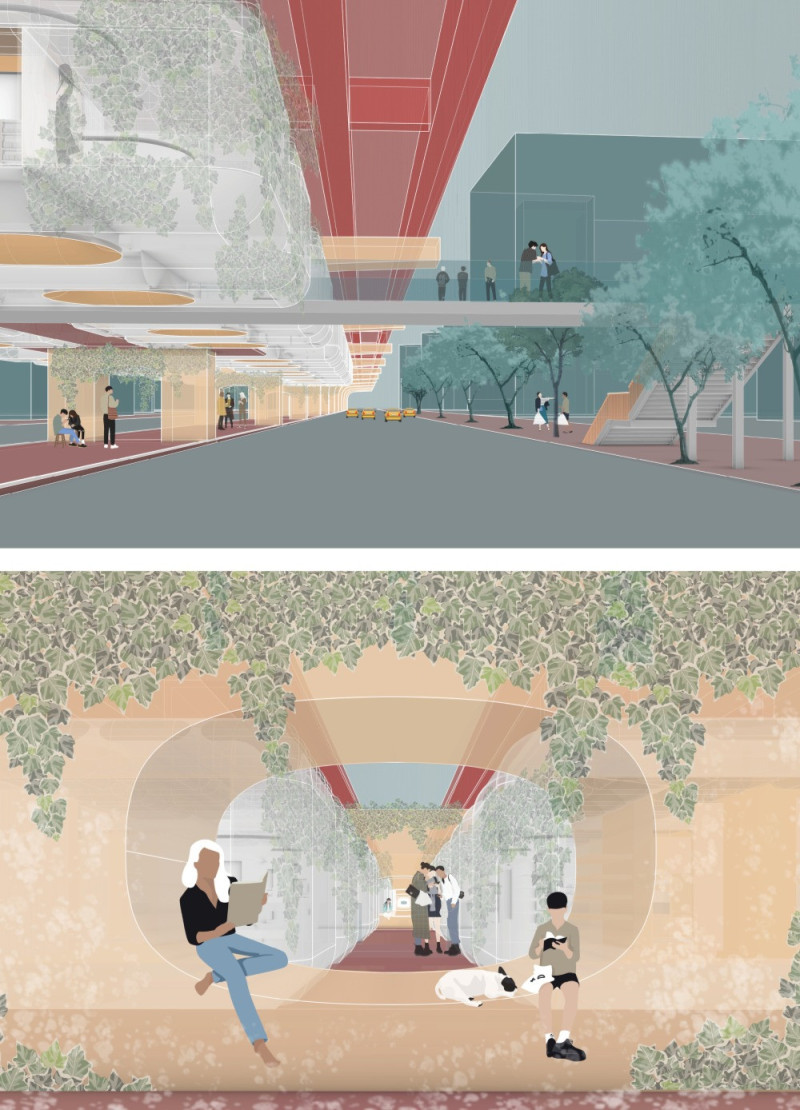5 key facts about this project
Off-Grid City Parasite is a project located in Chengdu that addresses the city's escalating housing crisis caused by rapid urban development. As neighborhoods face demolition to clear space for infrastructure, a solution emerges to support those temporarily displaced. The design aims to reclaim gray spaces, particularly beneath the city’s viaducts, transforming them into functional community living areas.
Design Components
The individual housing pods feature two main parts: a solid core and an inflatable shell. The solid core is essential for providing privacy and a strong structure, creating a stable living environment. This focus on privacy is vital as urban areas grow denser and personal space becomes increasingly limited.
On the outside, the inflatable shell serves several adaptive functions. It acts as a buffer against noise and vibrations from the busy urban environment, enhancing the comfort of residents. This design allows the housing pods to connect with their surroundings while maintaining a sense of tranquility for those living inside.
Adaptive Urban Integration
The concept of the housing pod reflects a "parasite" quality, allowing it to attach to underused spaces previously considered uninhabitable. This strategy revitalizes neglected areas and shows how thoughtful design can meet the challenges of modern urban living. By reimagining infrastructure as usable living space, the design encourages a shift in perspectives about how cities function.
Sustainability and Efficiency
Although specific materials are not highlighted, the nature of the inflatable shell indicates a preference for lightweight and flexible options that support easy setup and adaptability. This aligns with the overarching goal of sustainability, maximizing both space and resources effectively. Off-Grid City Parasite illustrates a modern response to housing needs by integrating innovative design with environmental considerations.
The design also creates a balance between individual and communal living. Micro homes provide personal sanctuaries while fostering connections among residents. Each pod embodies the idea of adaptable urban living, forming a cohesive environment where people can thrive amid the complexities of city life.


















































